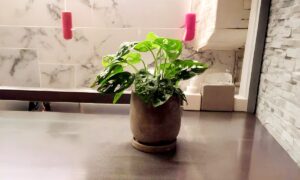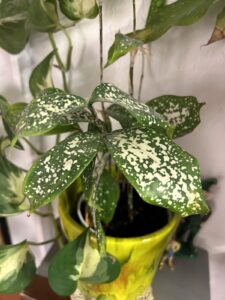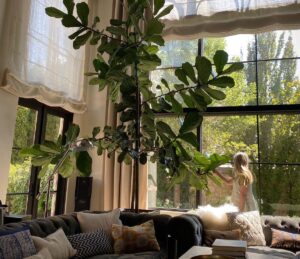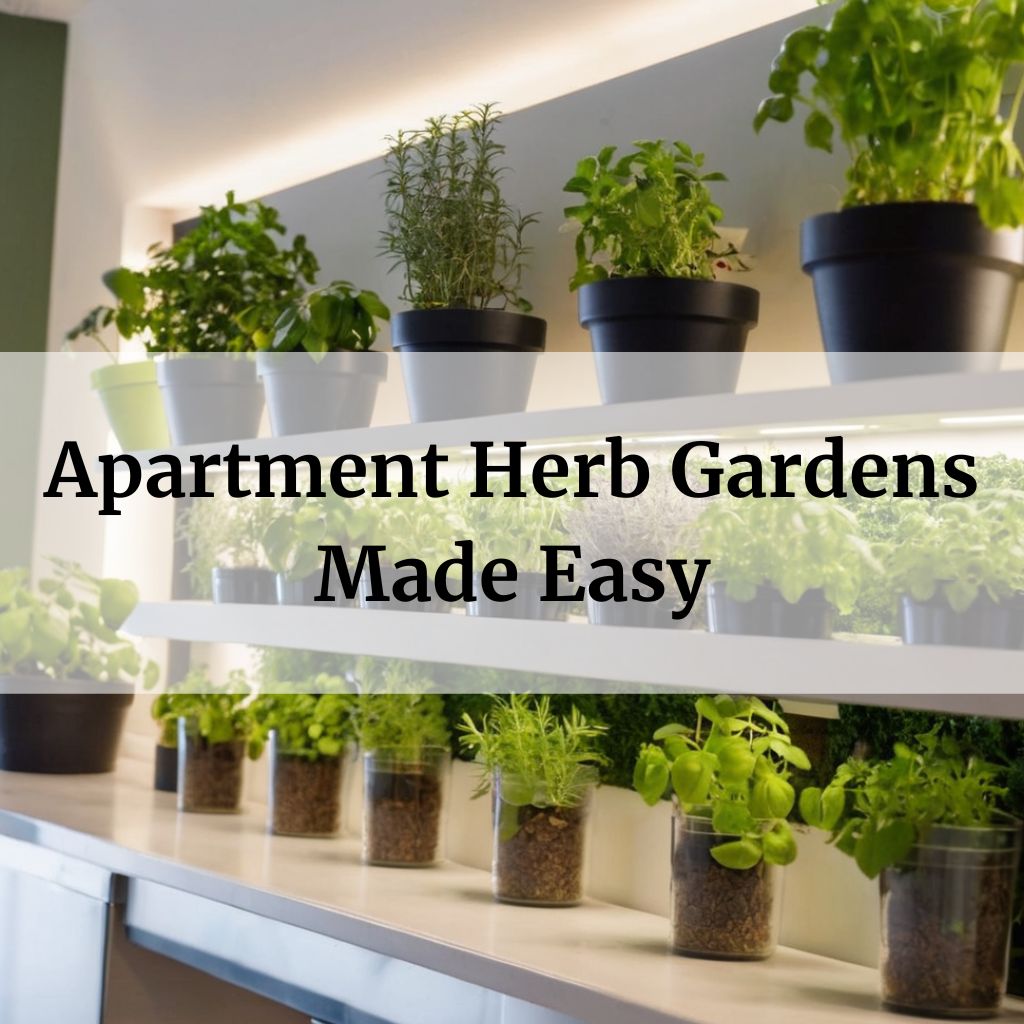
In this article, we’ll show you how to make apartment herb gardens easy and enjoyable, regardless of the size of your apartment. Indoor plants are not just a pleasant addition to your decor; they also offer fresh flavors and health benefits right at your fingertips.
In this article
Benefits of Having an Apartment Indoor Herb Garden
Who says you need a backyard to enjoy the serenity of a garden? Indoor herb gardens can transform your apartment into a mini-oasis, infusing life and freshness into your living space. Here are some compelling benefits:
- Fresh Herbs at Arm’s Reach: Imagine plucking a sprig of mint for your morning tea or snipping basil for a pizza, all without leaving your apartment.
- Aromatherapy for Your Senses: The scent of growing herbs is therapeutic. It’ll soothe your nerves and invigorate your living space.
- Decorative Delight: Herb gardens not only provide culinary delight but also serve as aesthetically pleasing decor.
- Health and Wellness: Many herbs have health benefits, from boosting immunity to aiding digestion.
My Personal Experience
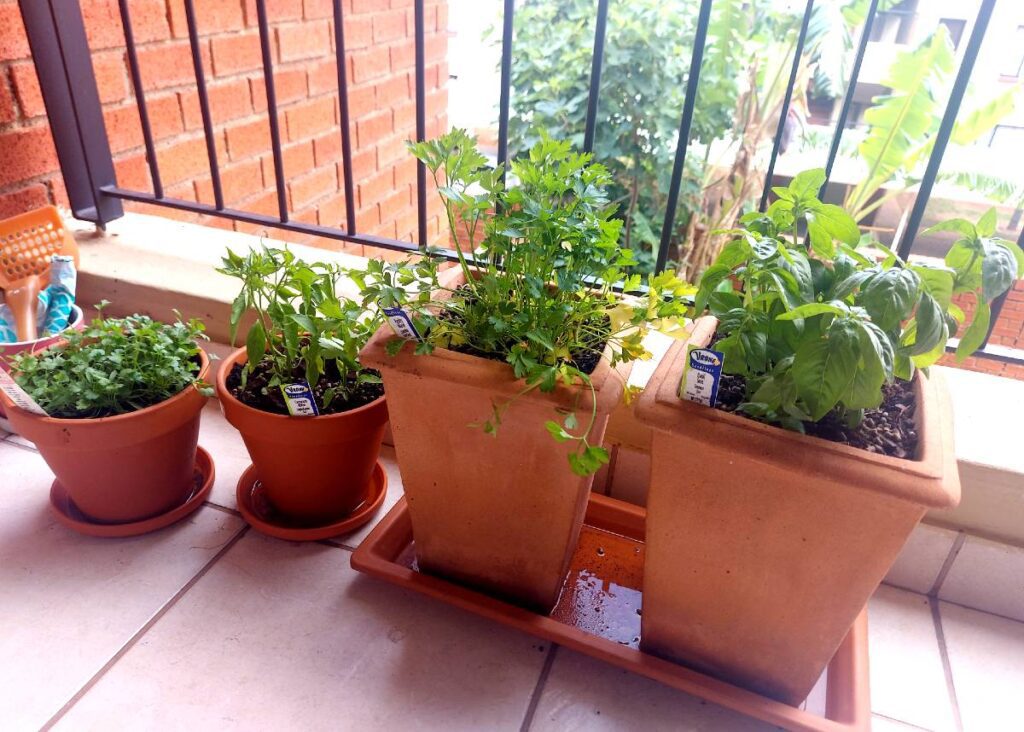
My journey with apartment herb gardens began when I moved into a cozy city apartment with minimal outdoor space. Fueled by a love for cooking and a desire to connect with nature, I decided to give it a try. As a novice gardener, I was pleasantly surprised by the ease and satisfaction of growing herbs indoors.
Watching basil, mint, and chives thrive on my balcony not only brought joy to my daily life but also transformed my approach to cooking. The convenience of snipping fresh herbs for my dishes was a game-changer, and the subtle fragrance that filled the room was a calming presence in my busy life.
Choosing the Right Herbs for Your Indoor Garden
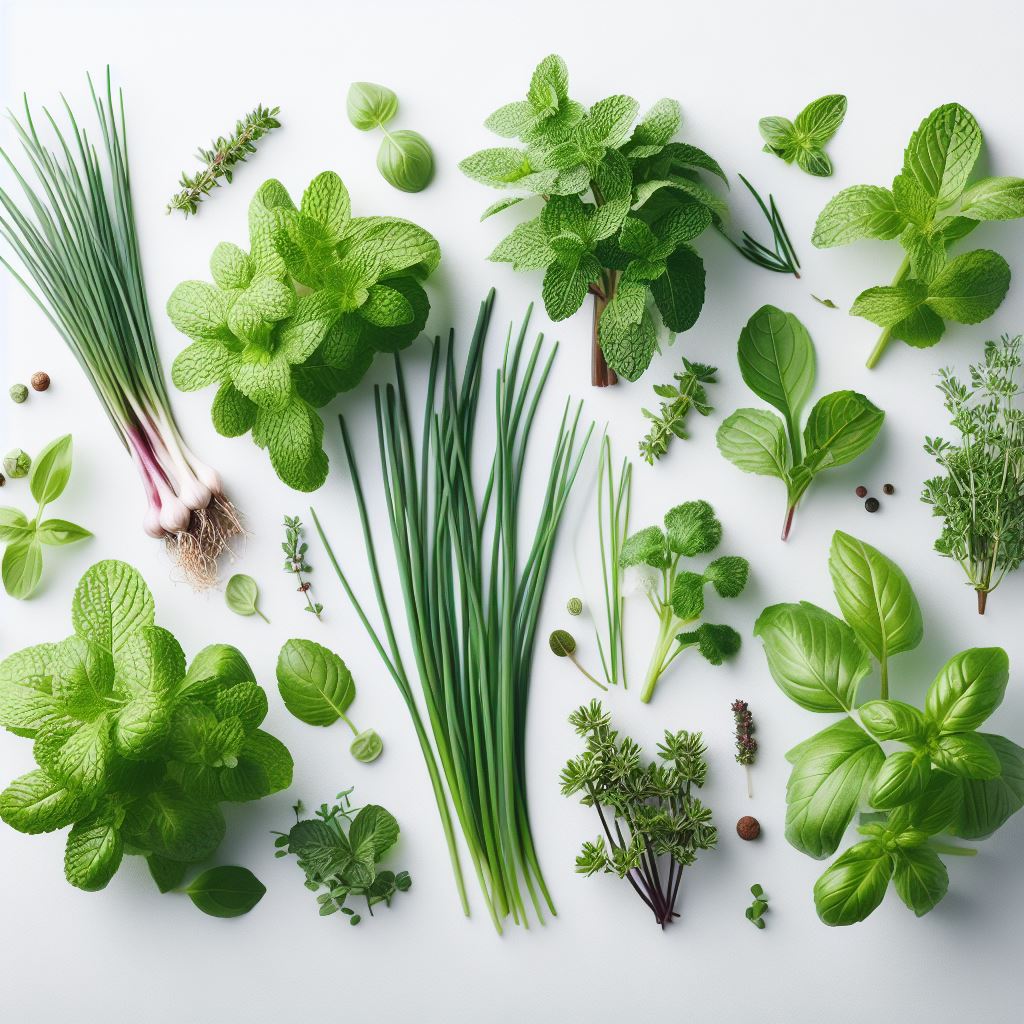
When it comes to selecting herbs for your apartment garden, it’s important to consider factors like your cooking preferences, available space, and sunlight exposure. Here are some popular herbs to consider:
- Basil: A staple for Italian cuisine, basil thrives indoors. It needs plenty of sunlight and well-drained soil.
- Mint: Mint is hardy and grows like wildfire. Keep it in a separate pot to prevent it from taking over.
- Parsley: A versatile herb, parsley prefers indirect sunlight and slightly moist soil.
- Chives: Chives are easy to grow and can thrive in a variety of conditions.
- Thyme: This herb loves sunlight and well-drained soil. It adds a delightful earthy flavor to dishes.
Selecting the Right Containers and Soil
The choice of containers and soil plays a crucial role in the success of your indoor herb garden. Here are some tips:
- Containers: Opt for containers with drainage holes to prevent overwatering. You can use a variety of options, including clay pots, plastic containers, or even upcycled items like teacups and mason jars.
- Soil: Use a high-quality potting mix with good drainage. You can also mix in some perlite or sand to enhance drainage and aeration.
Caring for Your Indoor Herb Garden
Caring for your indoor herb garden is relatively straightforward but requires attention to detail. Here’s a breakdown of what you need to know:
Watering: Herbs prefer soil that is evenly moist but not waterlogged. Ensure that your containers have drainage holes to prevent excess water accumulation.
Sunlight: Most herbs require at least 6 hours of sunlight daily. If you can’t provide this, consider using a grow light to supplement natural light.
Temperature: Keep your herbs in a room with a temperature range of 60-75°F (15-24°C).
Choose Quality Soil: Invest in a good potting mix to provide your herbs with the necessary nutrients.
Use Minimal Fertilizer: Herbs don’t need heavy fertilization. A diluted, balanced liquid fertilizer every few weeks during the growing season should suffice.
Use the Margins: Don’t waste the edges of your containers. Utilize them for smaller herbs or plants.
Practice Succession Planting: Sow seeds or plant new herbs every few weeks to ensure a continuous harvest.
Add Hanging Baskets: Save counter or windowsill space by hanging some of your herb pots.
Plant Compact Herbs: Opt for smaller varieties of herbs or prune larger ones to maximize your space.
Ensure Sufficient Sunlight: Rotate your pots to ensure all sides of your herbs get even sunlight exposure.
Move Things Around: Occasionally change the placement of your pots to help all your herbs get a fair share of sunlight and airflow.
Harvest, Prune, and Pinch: Regular harvesting encourages growth and keeps your herbs healthy.
Now that you’ve got a handle on the basics, let’s explore some creative ideas for designing and placing your indoor herb garden.
Design Ideas and Placement Options
Transforming your apartment into an urban oasis with an indoor herb garden isn’t just about utility; it’s also about creating a visually appealing and harmonious living environment. In this section, we’ll explore various design ideas and placement options, along with personal insights, difficulty levels, and approximate costs to help you make the right choice.
Vertical Gardens
Vertical gardens are a brilliant solution for apartment dwellers with limited floor space. Not only do they save space, but they also add a touch of elegance to your home.
- Difficulty Level: Moderate
- Approximate Cost: Varies
Pro Tip: Opt for vertical garden systems that come with built-in irrigation to make maintenance easier. These systems allow you to grow a variety of herbs without cluttering your apartment.
Windowsill Gardens
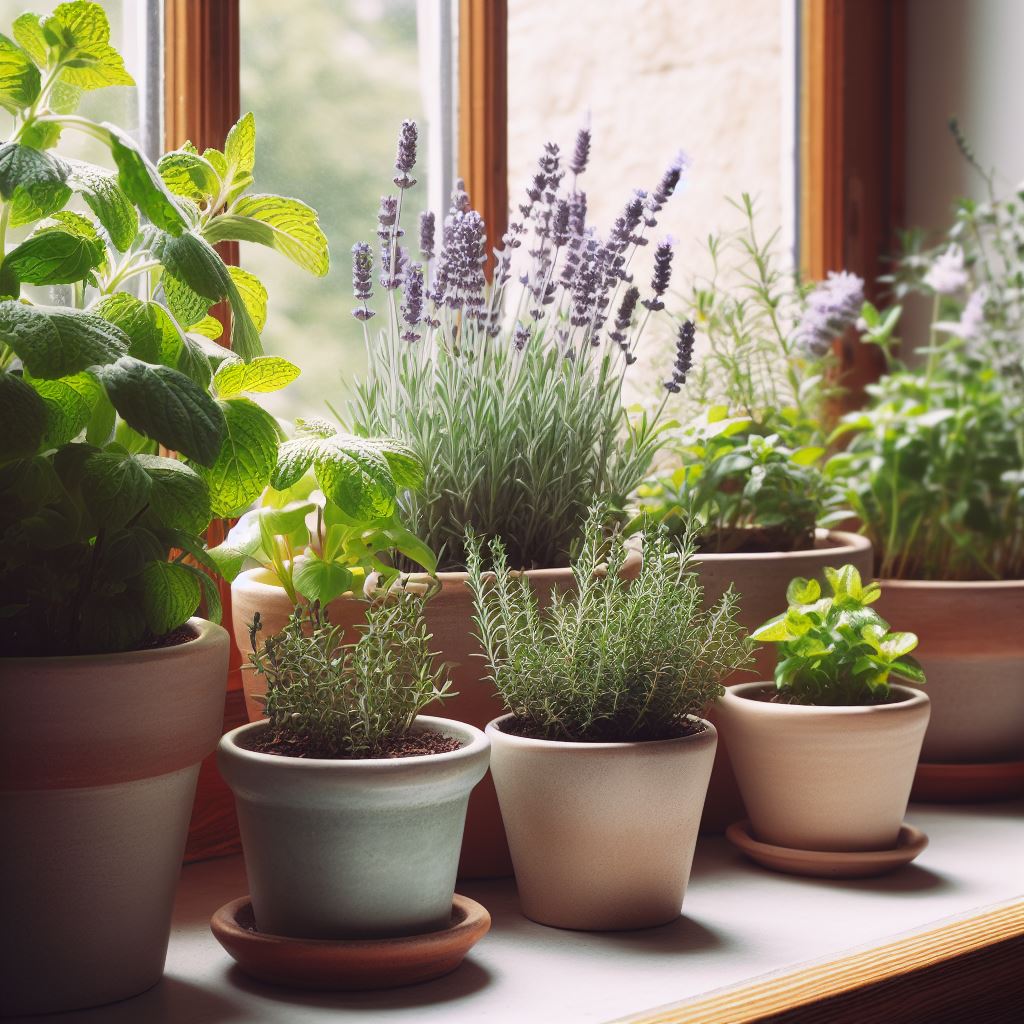
Windowsill gardens are a classic choice for apartment herb gardening. They’re easy to set up, and with the right placement, your herbs can bask in natural sunlight.
- Difficulty Level: Easy
- Approximate Cost: Affordable
Pro Tip: The key to a successful windowsill garden is to select the right herbs based on your available light. Herbs like basil, chives, and mint are excellent choices for this location. Be prepared to rotate the pots to ensure even growth.
Countertop Gardens
If you’re passionate about cooking and want fresh herbs at arm’s reach, a countertop garden is your best friend.
- Difficulty Level: Easy
- Approximate Cost: Minimal
Pro Tip: You can use decorative containers that match your kitchen decor. Compact herbs like thyme, rosemary, and oregano are ideal for countertop gardens, as they’re low-maintenance and provide intense flavors.
Herb Walls
Creating an herb wall is a delightful way to display your plants as living art. It’s a conversation piece that adds vibrancy to your apartment.
- Difficulty Level: Moderate
- Approximate Cost: Moderate to High
Pro Tip: This design requires some initial investment for wall-mounted planters or shelves. Remember to secure them properly to support the weight of the soil and herbs. You can even design your herb wall in a pattern or theme that reflects your personal style.
Terrariums
Terrariums are charming glass containers that can hold a small herb garden, creating a mini-ecosystem within your home.
- Difficulty Level: Easy
- Approximate Cost: Affordable to Moderate
Pro Tip: Terrariums are especially great for humidity-loving herbs like cilantro and parsley. Choose a glass container with a lid to create a self-sustaining environment. It’s a captivating and low-maintenance addition to your apartment.
Balcony or Patio Container Garden
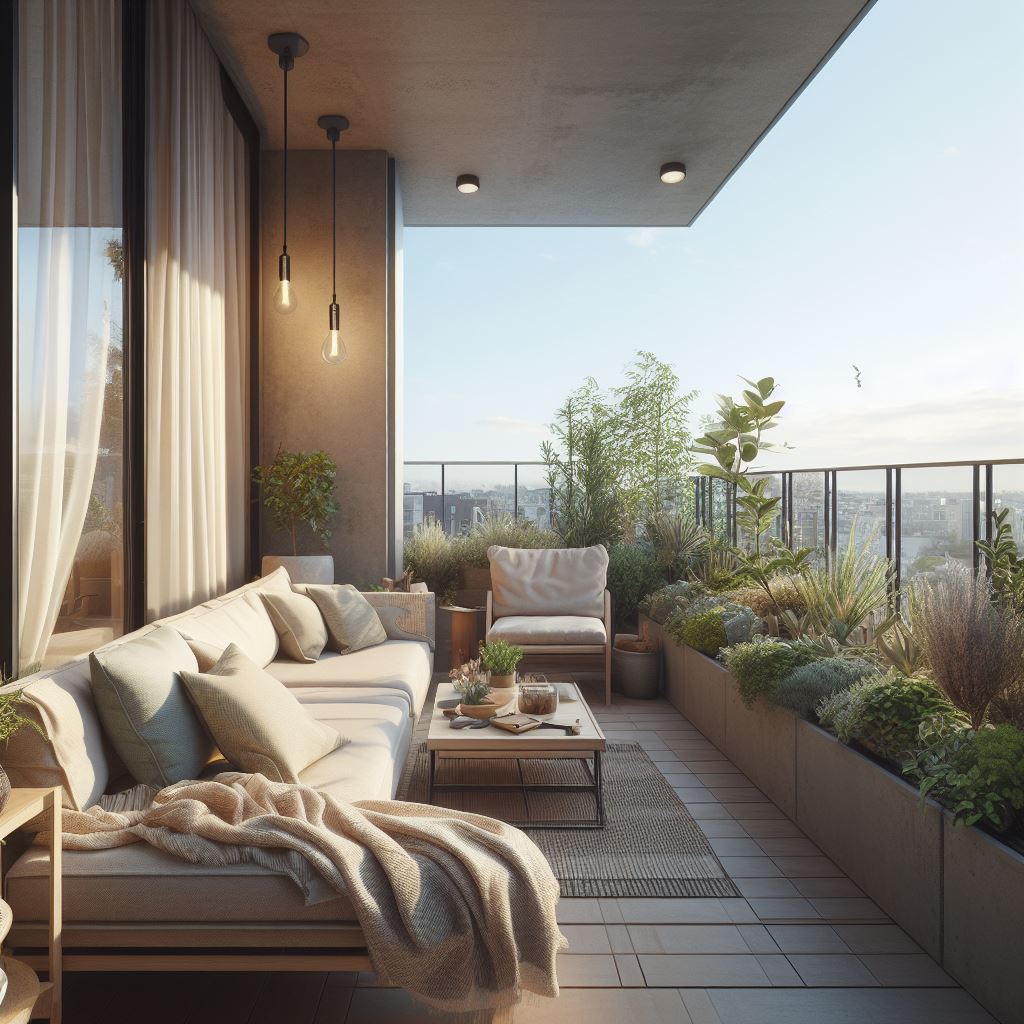
If you have a balcony or patio, consider creating a larger container garden. This option allows you to grow a wider variety of herbs, including those that require more space.
- Difficulty Level: Easy to Moderate
- Approximate Cost: Varies
Pro Tip: Use sturdy, weather-resistant containers and ensure proper drainage. This choice opens up the possibility of growing more than just herbs, such as vegetables and flowers. Don’t forget to incorporate a comfortable seating area to fully enjoy your green haven.
Low-Maintenance Plant Corner
Combining herbs with other low-maintenance indoor plants creates a serene corner in your apartment, simplifying your care routine.
- Difficulty Level: Easy
- Approximate Cost: Minimal
Pro Tip: Choose indoor plants like snake plants or pothos to complement your herb garden. These plants require minimal attention and add a harmonious touch to your apartment.
Grow Microgreens
Microgreens are not only easy to grow but also provide a burst of fresh flavor in a compact space.
- Difficulty Level: Easy
- Approximate Cost: Minimal
Pro Tip: Microgreens are a superb choice for beginners and limited spaces. You can grow them in shallow trays or containers and harvest them in just a few weeks. They’re perfect for adding a burst of freshness to salads and sandwiches.
Turn Your Bathroom into a Plant Haven
Surprisingly, your bathroom can also house a mini herb garden. Many herbs thrive in the humidity, making it a unique choice for placement.
- Difficulty Level: Easy
- Approximate Cost: Minimal
Pro Tip: Select herbs like mint, basil, or lavender, which flourish in the increased moisture levels of your bathroom. Ensure they still receive adequate light by placing them near a window or under a grow light.
With these detailed design and placement options, you can tailor your indoor herb garden to suit your apartment’s style and your personal preferences. From the humble windowsill to the elegant herb wall, there’s a solution for every space and aesthetic.
In the hustle and bustle of city life, apartment herb gardens offer a refreshing break from the concrete jungle. They bring a piece of nature into our homes, infusing our living spaces with aroma, flavor, and vibrant greenery. Whether you’re a seasoned gardener or just starting out, the benefits of nurturing these indoor oases are undeniable.
With a bit of love and patience, you’ll soon be on your way to enjoying fresh, homegrown flavors and the beauty of an apartment filled with thriving greenery.
Happy gardening!

